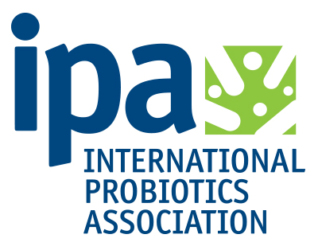www.wholefoodsmagazine.com/blogs/1-wholefoods-magazine/post/13717-as-asthma-surges-probiotics-gain-interest

As Asthma Surges, Probiotics Gain Interest
April 11, 2019
Note: The views and opinions expressed here are those of the author(s) and contributor(s) and do not necessarily reflect those of the publisher and editors of WholeFoods Magazine.
Children puffing on inhalers are a common sight these days, as air pollution spreads unabated across the globe. The World Health Organization reports that as many as 235 million people suffer from attacks of wheezing and breathlessness caused by swelling of the bronchial tubes; this chronic disease can interfere with daily activities and in some cases even be life-threatening.
Asthma is a chronic inflammatory condition which is characterized by inflamed airways complicated by bronchial overdrive and a flood of lymphocytes. Aggravated by environmental pollutants and toxins, among other triggers, the immune system secretes cytokines which induce multiple responses that cause the characteristic symptoms.
The crux of the problem in asthma appears to be inflammation, and here is some good news: Gut microbes may play a role here. Microbes are important immunomodulators for the entire body, stimulating regulatory T cells which can turn off inflammation. This anti-inflammatory effect is actually hypothesized by researchers to be a possible mechanism for the benefit of probiotics in asthma.
Indeed, many studies suggest that probiotics as well as prebiotics may allay certain symptoms or inflammatory markers of asthma but results have been mixed.
For example, one meta-analysis found that, although perinatal and early-life probiotic administration reduces atopic sensitization risk and total immunoglobulin E levels (antibodies causing allergic reactions) in children, it may not reduce their asthma risk. Differences in probiotic strains and length of study follow-up were cited as confounders.
In another study, early administration of Lactobacillus reuteri to infants did not result in a reduction of asthma at seven year follow-up; the effect of probiotics may be transient. In other research, a strain of Lactobacillus paracasei showed no long-term effect on any diagnosed allergic disease or airway inflammation.
Maternal probiotic ingestion during the perinatal period in a 2015 Norwegian study showed that infant incidence of asthma at six years of age was not affected compared to placebo.
Chian-Feng Huang and colleagues evaluated the effects of Lactobacillus paracasei (LP), Lactobacillus fermentum (LF), or their combination (LP + LF) on the clinical severity, immune biomarkers, and quality of life in school-age children with asthma. This double-blind, prospective, randomized, placebo-controlled trial included 160 children with asthma aged 6–18 years randomized to receive LP, LF, LP + LF, or a placebo for 3 months.
The results were reassuring. Compared with the placebo group, children receiving either LP, LF, or LP + LF had lower asthma severity and higher Childhood Asthma Control Test (C-ACT) scores over 3 months of the intervention compared with baseline.
The authors concluded: “We found that both LP and LF can reduce asthma severity and improve asthma control in school-age children. The combination of LP plus LF appears to be more effective in childhood asthma than either LP or LF alone. LP, LF, and their combination were well tolerated with fair compliance and without adverse effects reported.”
In addition to probiotic products containing a single bacterial strain, the clinical advantage of applying a mixture of bacterial strains has been demonstrated.
“Currently, there is no positive recommendation from scientific societies to use pre- or probiotics for treatment of food allergy or other allergic manifestations, while their use in prevention is being custom-cleared. However, the recommendation is still based on little evidence.”
While alleviating or preventing asthma with microbial management is the goal, research is only in its initial stages of discovery. It’s early in the game, but the research gaps are becoming clear. With targeted probiotic research on specific outcomes in specific patient groups, asthmatics may eventually be breathing easier.
IPA disclaimer:
Probiotics have different characteristics, qualities and actions that are unique to the specific strain or combinations. The label should identify the genus, species and strain for each microorganism in the product (i.e. Lactobacillus acidophilus IPA001). If a claim pertaining to individual strains or a blend of strains contained in the product is made, the manufacturer should maintain evidence that the amount(s) provided in the product is consistent with the scientific evidence in support of the claim.
References see attached docs:
IPA Infographic – 5 Essentials for a Quality Probiotic Label
IPA & CRN Best Practices Labeling Guidelines for Probiotics
Clare Fleishman MS RD bridges the gap between science and health across most platforms: major newspapers, magazines, books (Globesity), workshops, social media and websites. From corporate whiteboards to refugee schools in Egypt, Fleishman agitates for personal and public change. In 2010, she launched www.ProbioticsNow.com to share the cascade of new discovery in the microbiome. Always amazed at this “forgotten organ” Fleishman also creates white papers, blogs, videos and social media for the International Probiotics Association.
Children puffing on inhalers are a common sight these days, as air pollution spreads unabated across the globe. The World Health Organization reports that as many as 235 million people suffer from attacks of wheezing and breathlessness caused by swelling of the bronchial tubes; this chronic disease can interfere with daily activities and in some cases even be life-threatening.
Asthma is a chronic inflammatory condition which is characterized by inflamed airways complicated by bronchial overdrive and a flood of lymphocytes. Aggravated by environmental pollutants and toxins, among other triggers, the immune system secretes cytokines which induce multiple responses that cause the characteristic symptoms.
Microbe Hypothesis
The bad news is that asthma rates are increasing. One explanation is that less exposure to microbes (hygiene or microbial hypothesis) upregulates the cytokine production of T-helper cell type 2, leading to an increase in allergic diseases.The crux of the problem in asthma appears to be inflammation, and here is some good news: Gut microbes may play a role here. Microbes are important immunomodulators for the entire body, stimulating regulatory T cells which can turn off inflammation. This anti-inflammatory effect is actually hypothesized by researchers to be a possible mechanism for the benefit of probiotics in asthma.
Indeed, many studies suggest that probiotics as well as prebiotics may allay certain symptoms or inflammatory markers of asthma but results have been mixed.
Conflicting Data
Experts say that the evidence for probiotics in asthma therapy is mixed because of study limitations.For example, one meta-analysis found that, although perinatal and early-life probiotic administration reduces atopic sensitization risk and total immunoglobulin E levels (antibodies causing allergic reactions) in children, it may not reduce their asthma risk. Differences in probiotic strains and length of study follow-up were cited as confounders.
In another study, early administration of Lactobacillus reuteri to infants did not result in a reduction of asthma at seven year follow-up; the effect of probiotics may be transient. In other research, a strain of Lactobacillus paracasei showed no long-term effect on any diagnosed allergic disease or airway inflammation.
Maternal probiotic ingestion during the perinatal period in a 2015 Norwegian study showed that infant incidence of asthma at six years of age was not affected compared to placebo.
On the Right Track
It seems researchers have the right idea so far regarding the link between microbes, inflammation, and asthma. Pre-clinical studies have shown that modifying the microbiota can potentially modulate certain inflammation and immune responses of animals, thus reducing sensitization and allergic inflammation. In rodent asthma models, Lactobacillus rhamnosus inhibited allergen-induced asthma. A combination of specific strains of Lactobacillus salivarius and Bifidobacterium breve was able to decrease the secretion of proinflammatory cytokines by peripheral blood monocytes cells from subjects affected by allergic asthma in a 2015 study.More Good News
A 2018 study from Taiwan focused on the therapeutic effects of probiotics in asthma.Chian-Feng Huang and colleagues evaluated the effects of Lactobacillus paracasei (LP), Lactobacillus fermentum (LF), or their combination (LP + LF) on the clinical severity, immune biomarkers, and quality of life in school-age children with asthma. This double-blind, prospective, randomized, placebo-controlled trial included 160 children with asthma aged 6–18 years randomized to receive LP, LF, LP + LF, or a placebo for 3 months.
The results were reassuring. Compared with the placebo group, children receiving either LP, LF, or LP + LF had lower asthma severity and higher Childhood Asthma Control Test (C-ACT) scores over 3 months of the intervention compared with baseline.
The authors concluded: “We found that both LP and LF can reduce asthma severity and improve asthma control in school-age children. The combination of LP plus LF appears to be more effective in childhood asthma than either LP or LF alone. LP, LF, and their combination were well tolerated with fair compliance and without adverse effects reported.”
Importance of the Strain
While allergies often respond well to probiotic treatment, the effect in each asthmatic varies. Impact of probiotics in asthma also seems to vary by strain. It turns out that the individual strain is very important: Each probiotic strain is a unique organism with specific properties that cannot be extrapolated from other, even closely-related, strains.In addition to probiotic products containing a single bacterial strain, the clinical advantage of applying a mixture of bacterial strains has been demonstrated.
The Way Forward
A 2017 review in Frontiers in Pediatrics concludes:“Currently, there is no positive recommendation from scientific societies to use pre- or probiotics for treatment of food allergy or other allergic manifestations, while their use in prevention is being custom-cleared. However, the recommendation is still based on little evidence.”
While alleviating or preventing asthma with microbial management is the goal, research is only in its initial stages of discovery. It’s early in the game, but the research gaps are becoming clear. With targeted probiotic research on specific outcomes in specific patient groups, asthmatics may eventually be breathing easier.
IPA disclaimer:
Probiotics have different characteristics, qualities and actions that are unique to the specific strain or combinations. The label should identify the genus, species and strain for each microorganism in the product (i.e. Lactobacillus acidophilus IPA001). If a claim pertaining to individual strains or a blend of strains contained in the product is made, the manufacturer should maintain evidence that the amount(s) provided in the product is consistent with the scientific evidence in support of the claim.
References see attached docs:
IPA Infographic – 5 Essentials for a Quality Probiotic Label
IPA & CRN Best Practices Labeling Guidelines for Probiotics
Clare Fleishman MS RD bridges the gap between science and health across most platforms: major newspapers, magazines, books (Globesity), workshops, social media and websites. From corporate whiteboards to refugee schools in Egypt, Fleishman agitates for personal and public change. In 2010, she launched www.ProbioticsNow.com to share the cascade of new discovery in the microbiome. Always amazed at this “forgotten organ” Fleishman also creates white papers, blogs, videos and social media for the International Probiotics Association.

